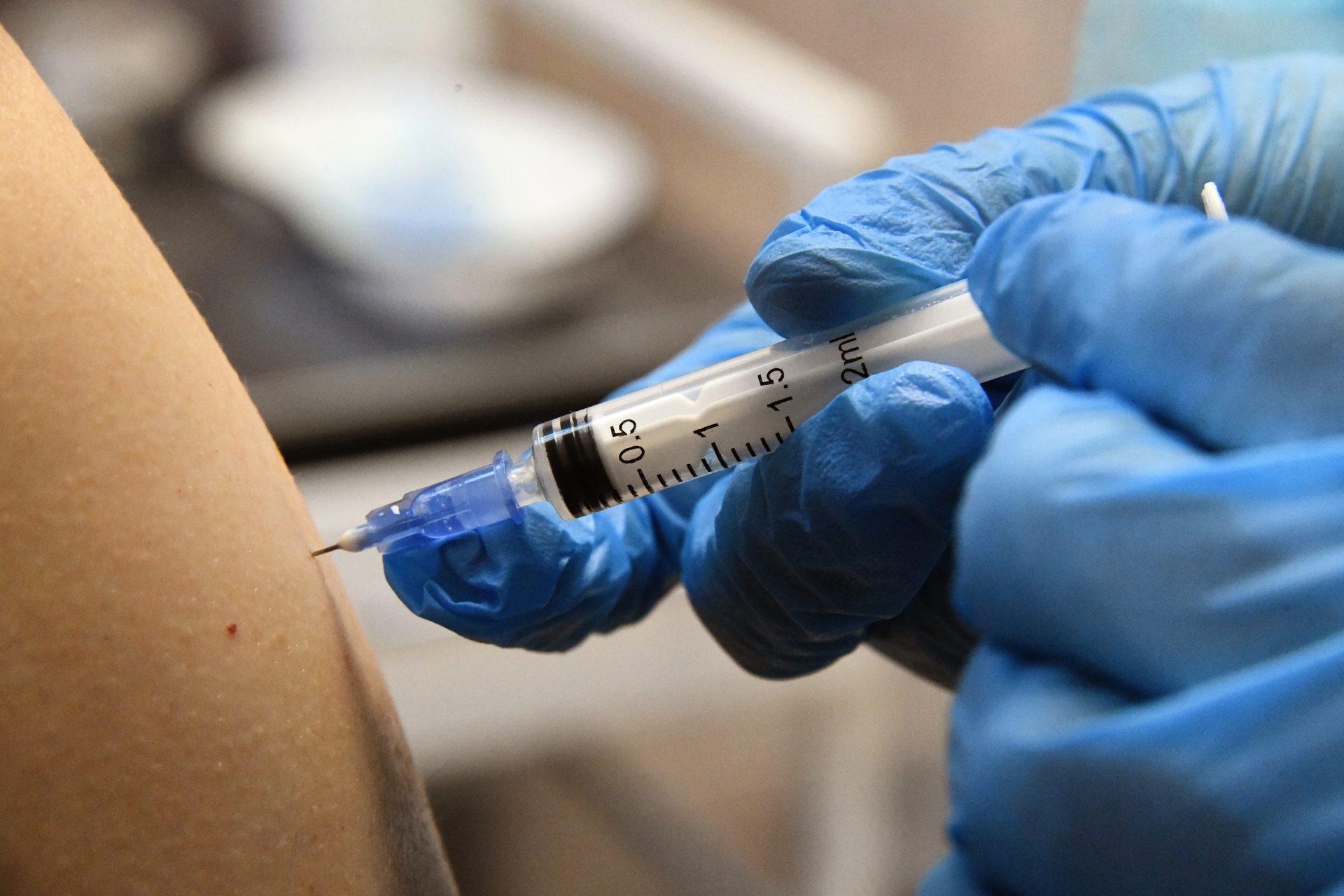Cellular immunity after vaccination against coronavirus infection for adolescents "Sputnik M" was formed in 93.2% of volunteers, TASS reports with reference to the instructions for the drug.
“Immunization with the“ Gam-covid-vac-M ”preparation forms an antigen - specific cellular anti-infectious immunity in 93.2% of the surveyed volunteers,” the text says.
The Sputnik M vaccine for the prevention of COVID-19 in children aged 12 to 17 was registered by the Ministry of Health on November 24.
The drug consists of two components, which are administered at intervals of 21 days.
Vaccination with the drug may pose a risk for patients with autoimmune diseases and malignant neoplasms due to a possible exacerbation of the disease.
Also "Sputnik M" should be used with caution in chronic diseases of the liver and kidneys, as well as the endocrine system.
At the same time, the instructions note that the side effects identified in clinical trials "are predominantly mild or moderate, can develop in the first or second days after vaccination and are resolved within the next three days."
As noted in the Ministry of Health, vaccination of children aged 12 to 15 years will be carried out only with the consent of parents or guardians, adolescents aged 15 and older will be able to make decisions on their own.
The department clarified that the registration certificate of the Sputnik M vaccine is valid for five years - until November 24, 2026.
At the same time, Kirill Dmitriev, head of the Russian Direct Investment Fund (RDIF), said that Sputnik M would be supplied to international markets.
RIA News
© Evgeny Epanchintsev
Deputy Director of the Research Center for Epidemiology and Microbiology named after V.I.
Gamalei Denis Logunov in an interview with RT the day before noted that the drug was created to protect minors from the severe course of coronavirus, which is also recorded in this age group.
“There are all sorts of cases among children too, and children can also be seriously ill.
Therefore, in fact, in order to close this part of the population, a vaccine is being created, ”he said.
He also said that during the research, a completely safe dose of the drug for children was selected - this is 1/5 of the adult dose.
The day before, the Ministry of Health reported that more than 30 thousand children in Russia are being treated for COVID-19.
The department added that in connection with the spread of the "delta" strain, the number of cases of children with coronavirus is "steadily growing."
Meanwhile, the director of the Gamaleya National Research Center for Epidemiology and Microbiology, Alexander Gintsburg, said that 70 million Sputnik V vaccine kits and 15 million Sputnik Light were released into civilian circulation in Russia.
Gunzburg also noted that there were no side effects after the use of a nasal vaccine against coronavirus.
The specialist warned that the vaccine, like any drug, can be dangerous for allergy sufferers at the stage of exacerbation of the disease.
“When there is no exacerbation ... there are no restrictions,” he said.
In May, the director of the Gamaleya Center, Alexander Gintsburg, said that registration of a nasal vaccine against coronavirus infection could occur in 2022.
Spread of COVID-19
In Russia, over the past day, 33 796 new cases of coronavirus infection were detected.
The largest number of them was noted in Moscow (3349), St. Petersburg (1538) and the Moscow region (1483).
During this time, 38 450 patients have fully recovered, 1238 people have died.
The total number of COVID-19 cases registered in the country has reached 9,468,189.Since the beginning of the pandemic, 8,164,826 people have recovered in Russia, 269,057 patients have died.
The European Bureau of the World Health Organization, commenting on the situation with COVID-19, called unvaccinated people the main distributors of coronavirus infection.
“We urge everyone who has the right to be vaccinated to take advantage of this opportunity.
This is especially important for priority groups, such as people aged 60 and over, as well as people with weakened immunity, "- quoted by RIA Novosti the statement of the bureau.
WHO also noted the importance of adhering to all preventive measures, such as wearing personal protective equipment, social distancing, contact tracing and isolation.
In addition, the bureau named the reasons for the increase in COVID-19 infections in the European region.
According to WHO, the increase in infection and mortality there is due to the predominance of the "delta" strain, insufficient vaccination, as well as cold weather, because of which people spend more time gathering indoors.
"And fourthly, the use of measures to contain the spread of the virus, for example, wearing masks in closed and crowded places or maintaining a safe distance, is inconsistent," the WHO said.

